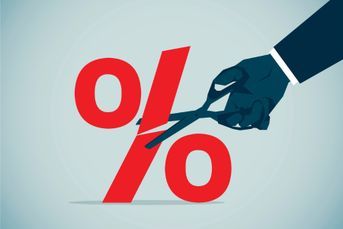Some taxpayers will pay more for online, do-it-yourself preparation
Having more willpower early in the season could save a few bucks.
There are really two tax seasons every year, marked by two very different attitudes.
In January and February, taxpayers tend to have simple situations, know they’re due a refund and want that money as soon as possible. They’re in a pretty good mood.
Then, as the deadline looms, another group of Americans gets around to filing their taxes. These people tend to owe the IRS, have more complex finances and need to collect many more forms before they can even start their 1040s. Many are lucky to get everything done by the middle of April. They’re not in such a good mood.
“Because they’ve waited until the last minute, they’re less patient,” said Lance Dunn, co-founder of the online discount tax prep company TaxAct. If there are any last-minute problems, the typical late filer gets even crankier, Mr. Dunn said. “He’s got the panic button fully pressed.”
That’s the taxpayer who is probably going to get charged a lot more for online, do-it-yourself tax preparation.
TurboTax, H&R Block and TaxAct have practiced their own form of surge pricing for years. They offer cheap, sometimes even free services to early filers. Then, usually in late March, they slap customers with price hikes of 30% or more. Sometimes they continue ratcheting prices up in the days before the deadline. You would expect people with more complicated taxes to pay a preparer more — but all categories of taxpayers get hit with price increases as the deadline nears, including those with very basic tax situations.
https://s32566.pcdn.co/wp-content/uploads/assets/graphics src=”/wp-content/uploads2016/03/CI104381317.JPG”
Much-advertised “free filing” options, aimed at those with the simplest tax situations, disappear by late in the tax season, according to historical price data provided by Oppenheimer & Co. analyst Scott Schneeberger. Last year, TurboTax ended its “Absolute Zero” offering — charging nothing for both federal and state returns for taxpayers with the simple 1040EZ and 1040A forms — in mid-February. This year, TurboTax and TaxAct, which has matched its competitor’s offer, were still offering free federal and state filing as of March 8. H&R Block’s online product charges for a state return, but its free federal return covers a wider swath of simple tax situations than the 1040A and 1040EZ.
These free products are an effort to win over young, entry-level tax filers before their finances get more complicated. When that happens, tax preparers can start making real money. For filers who need to report investment activity to the Internal Revenue Service, for example, TaxAct was charging $40 as of March 8, while H&R Block cost $72 and TurboTax charged $92.
As we get closer to April 18, the deadline this year, the prices will rise higher still, if past years are any guide.
https://s32566.pcdn.co/wp-content/uploads/assets/graphics src=”/wp-content/uploads2016/03/CI104382317.JPG”
Prices for other categories, including those for homeowners, the self-employed and business owners, also can jump by a third in late March, Oppenheimer data show.
H&R Block didn’t respond to requests for comment on its online pricing strategy. At TurboTax, lower prices early in the tax season “encourage taxpayers to file as early as possible,” helping spread tax filing away from its peak times and ensuring the firm delivers good service “during our busiest times,” said Julie Miller, a spokeswoman for Intuit Inc., TurboTax’s parent company. TaxAct points out that it offers a “price lock guarantee,” which lets customers start a return early in the season and lock in a low price even if they finish it later.
Many Americans have trouble just thinking about their taxes. From January to April, they carry around a dread of what they might owe and what the IRS might do to them if they make a mistake. Then, again and again, they put tax time off — to tomorrow night, to next weekend — until the task can’t be delayed any longer.
For these taxpayers, some willpower early in the season would not only prevent four months of torture. It would save them a few bucks, too.
Learn more about reprints and licensing for this article.








